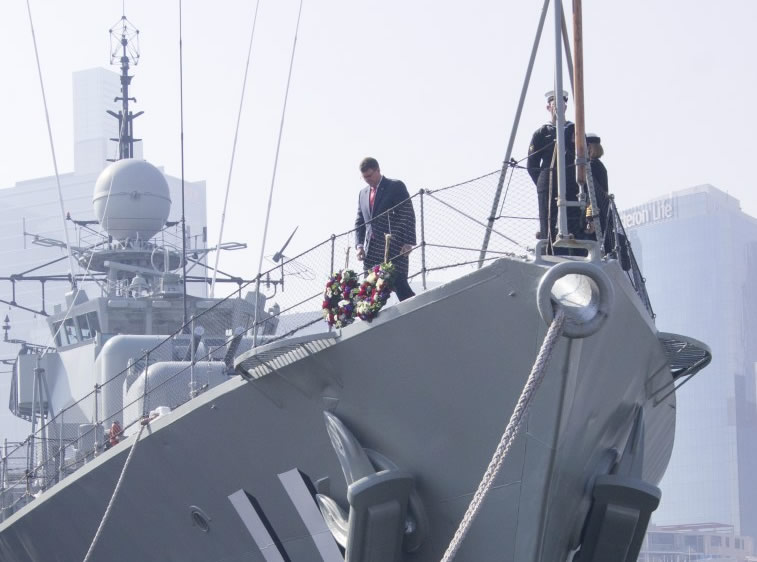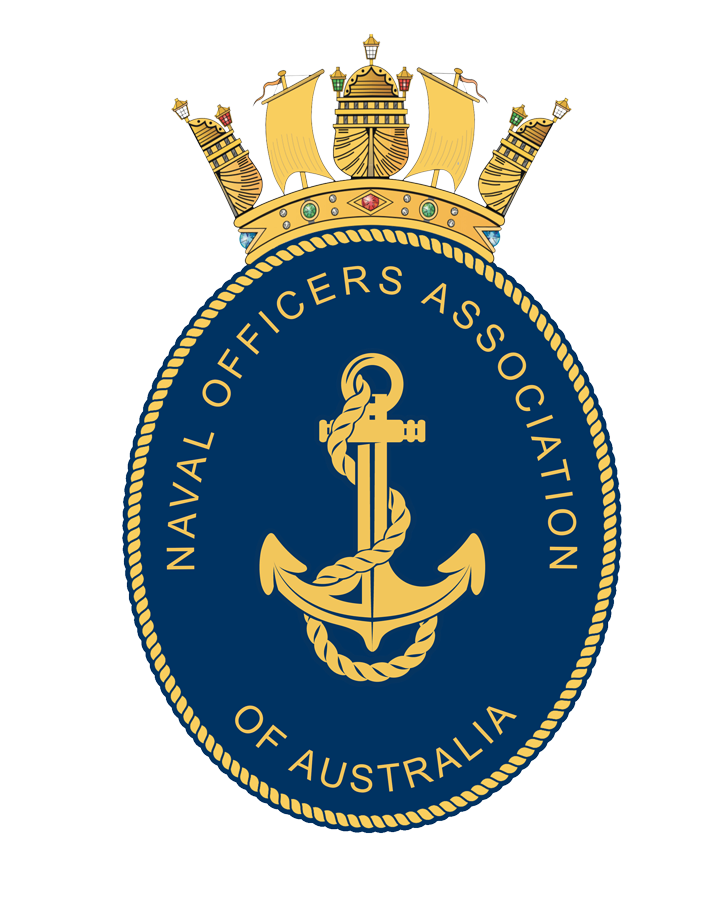
US Ambassador John Berry lays a wreath commemorating the Battle of the Coral Sea on the bow of museum ship HMAS Vampire.
Veterans and members of the Australian and the American Militaries,
Distinguished guests, Ladies and gentlemen:
On May 8, 1942, the Allied strategic victory of the Coral Sea changed the course of history. Without Coral Sea, there could have been no Midway, no Guadalcanal, and no victory in the Pacific. The last 70 years of stability and prosperity in the Asia pacific region would have been unimaginable.
We won because of the strength of character, dedication, and sacrifice of the US and Australian defense forces. The story of the USS Neosho is one of many stories of courage from the Coral Sea.
A survivor of the attack on Pearl Harbor, this vitally important fuel tanker sustained the American ships engaged in the battle. It retreated hundreds of miles away from the battle to preserve its precious cargo. But, the battle found Neosho. It suffered seven direct hits from Japanese aircraft and a suicide dive – shooting down three of its attackers in the process. Superb seamanship kept Neosho afloat; though lost and defenceless.
Four days after the battle, the Royal Australian Air Force found the Neosho, with 123 surviving seamen aboard. Another four men from the Neosho survived nine days in an open life raft without food, water, or shelter. Hundreds of men were lost.
Only upon rescue, did the Neosho’s crew learn that the American and Australian forces had turned back the Japanese, ending their southward expansion in World War II.
The cost – the USS Lexington, three other ships and 69 US and Australian planes; 656 brave men, Americans and Australians. But, most importantly, Japan suffered its first defeat of the war– losing its two newest fleet carriers, eight smaller ships, 92 planes, and the strategic and offensive initiative in the Pacific.The cost – the USS Lexington, three other ships and 69 US and Australian planes; 656 brave men, Americans and Australians. But, most importantly, Japan suffered its first defeat of the war
The cost of our victory in the Pacific is also personal for me. I am the second generation of my family to serve here. My father fought on Guadalcanal as part of the 1st Marine Division, and my uncle, my namesake, was a fighter pilot who was among the many who did not return home. My dad told me that the Marines landed on Guadalcanal with few supplies, and received very little more due to Japanese victories at sea. They were short of food and ammunition. They lived in foxholes and dugouts. They fought in mud and rain and heat. They suffered from malaria and malnutrition. They endured constant assault, and were hit by some of the heaviest naval barrages of the war. But those Marines held that rock. And, in doing so, like those who battled in the Coral Sea, they helped turn the tide of the war – and of history.
In conditions like those – after nine months of hard fighting – it would be incredibly easy to lose hope. But my father and his mates were lucky enough to come to Australia to rest and recuperate. After the hell of Guadalcanal, Australia must have seemed like a paradise. Indeed, my father told me that the people of Australia were so good, so generous, and so warm-hearted and true it reminded him not only that there was good left in the world, but that it was damn well worth fighting for.
When the ships came to Australia, there was a band there to meet them, playing “Waltzing Matilda.” General Vandegrift reportedly remarked that it was the best sound he had ever heard. To this day, the 1st Division Marines always ship out to the sound of “Waltzing Matilda”.
Whenever I hear this song, I give thanks to the brave and noble few who forged in blood an alliance second to none. Their sacrifice is the unshakeable foundation upon which our alliance stands. An alliance dedicated to shared values – duty, courage, mateship, and above all, freedom. God bless them and their families.
God bless Australia and the United States of America.
Lest we forget.
(US Ambassador John Berry – 7 May 2016)

